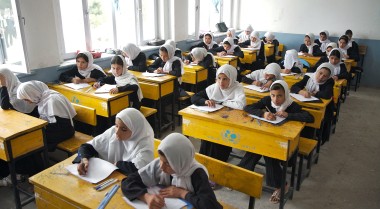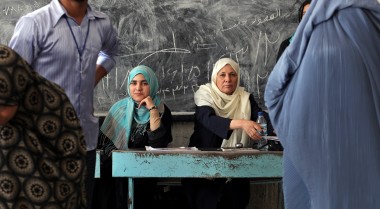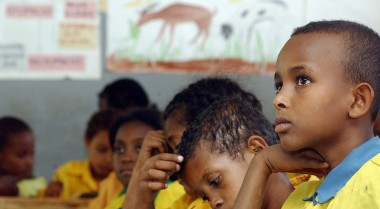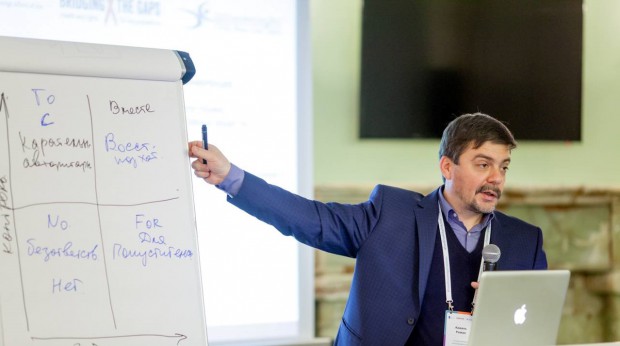
Educating Afghanistan's girls: A conversation with Humayoon Chakhansuri
Gary Shaw, Chair of the GPPAC Peace Education Working Group, recently talked to Humayoon Chakhansuri, whose life has been marked by both tragedy and hope. Having left Afghanistan as a child, Humayoon returned as an adult, driven by a desire to contribute to his homeland's progress. However, in August 2021, the Taliban's resurgence forced him to flee once more, ultimately finding refuge in Sydney, Australia.
Despite adversity, Humayoon founded Fyza SHE-Education– Let’s Educate Her in November 2021, an online platform dedicated to educating Afghan girls. In this interview, Humayoon discusses the dire state of girls' education in Afghanistan and shares his story behind starting the program. He talks in-depth about the programme's different components, the remarkable response it has garnered, his hopes for its future, and the support needed to sustain it.
What is the situation like for girls' education in Afghanistan?
The situation for girls' education in Afghanistan has become critical and deeply concerning. According to UNESCO data, as of September 2021, around 1.1 million girls and young women are being denied formal education. Shockingly, this represents approximately 80% of school-aged Afghan girls and young women, with nearly 30% of these girls having never had the chance to start primary education.
The educational landscape for women worsened in December 2022 when universities were closed to women, affecting over 100,000 female students. This is particularly disheartening given that between 2001 and 2018, there was a significant improvement in women's higher education in Afghanistan. The number of women in higher education had surged nearly twentyfold, reaching a point where one out of every three women was enrolled in university.
This suspension of education for women and girls represents a severe setback. It doesn't just affect individual lives but potentially sets back the progress of Afghan society as a whole, considering the pivotal role that education plays in the social and economic development of a country.
What prompted you to initiate an education programme specifically for Afghan girls?
The decision to set up an education program for girls came at a time when I was battling a deep depression. One day, a spark of reason ignited within me, reminding me that succumbing to despair was not the answer. I realised that while I couldn't alter the harsh realities in Afghanistan, I could still make a difference. I could be a source of light for girls caught in crisis and conflict by providing them with knowledge and the opportunity for education.
Determined to act, I reached out to the girls and families left behind by the current system, starting online classes for secondary and high school education. Supported by close friends and family, we pooled resources and launched classes for grades 7 through 12, along with English and computer lessons. We began with hope in November 2021, and the response from the parents and girls was nothing short of overwhelming.
This initiative, albeit small against Afghanistan's challenges, serves as a beacon of hope for the families and a healing journey for me. It has rejuvenated my sense of purpose, seeing the eagerness in these girls to learn despite the medium or the uncertainty ahead. It is a testament to the power of education and the unyielding spirit of our girls, offering a profound counterpoint to the despair I felt just two years prior.
How does the education programme work, considering the challenges faced in Afghanistan?
The classes are held virtually for Afghan girls who are unable to attend secondary and high school due to the current bans. We have nine teachers, including me, who conduct online classes for grades 7 through 12, including English and Computer Science. Despite the many hurdles they face, these girls' dedication to their education is nothing short of inspirational. We initially grappled with challenges such as frequent power outages and unstable internet connections in Afghanistan, which disrupted our classes. To overcome this, our teachers began recording their lessons, allowing students to access the material without needing a live internet connection. This has been a crucial adaptation, ensuring that learning continues uninterrupted.

What has been the response to the program, and do you have any success stories to share?
The program has been met with incredible enthusiasm, with hundreds of girls eager to participate. So far, we have served over 220 girls. Despite facing significant barriers to education, these young women have shown remarkable determination and resilience. Our program has not only continued to attract interest but is also growing. We are now expanding and enrolling an additional 180 girls, which will significantly increase our reach and the positive effects of our efforts.
These girls are not just learning but preparing to lead and inspire the next generation. Our work continues, driven by the belief that every girl we educate is a step towards a brighter future for them.
What are your hopes for the program in the future?
Our aspirations for the program's future are expansive and community-driven. We aim to grow our reach, connecting with more girls across Afghanistan who are eager for education. We envision creating a robust community where knowledge is received and shared peer-to-peer, allowing girls who may not have direct access to us or the internet to still benefit from the education we offer.
Moreover, we plan to integrate skill-based education into our curriculum, equipping these young women with the tools to work from home and establish e-businesses via virtual platforms. This aspect of the program is particularly crucial as it aligns with the opportunity to contribute to the Afghan private sector, which, in compliance with the Taliban's rules and procedures, remains open to employing women.
We hope to build a sustainable model of education and empowerment that not only withstands current challenges but also lays the groundwork for a future where Afghan women can thrive educationally and economically within their communities.
What support do you need to sustain and grow the program?
To sustain and grow our education program for Afghan girls, we need a variety of support:
Monetary Support: Financial contributions are crucial. They enable us to hire skilled teachers, maintain internet services, and provide the girls with the necessary learning materials for their online education.
Volunteering: We welcome professionals who can donate their time to teach, mentor, or offer guidance in their areas of expertise, greatly enriching the learning experience for our students.
Network and Outreach: Help spread the word about our initiative, which can significantly increase our program's visibility and support. This includes sharing information through social media, reaching out to potential sponsors, and connecting us with like-minded individuals and organisations.
Resource Sharing: Contributions in the form of educational resources, such as access to e-books, educational software, and interactive tools, can significantly enhance the learning experience.
Each support form contributes to the program's resilience and is a step towards a brighter educational future for Afghan girls.
What opportunities do you envision for collaboration and mutual learning between yourself and the broader GPPAC community, particularly through the Peace Education Working Group (PEWG)?
The PEWG has extensive experience and expertise in educational programs, particularly online learning, and there would be mutual benefit from sharing my experience with members of the PEWG meetings or participating in the GPPAC webinar discussions about education for girls and online learning. If possible, I would also like my students to participate in discussions with the broader community and to share their experiences and learning with GPPAC members. This collaborative exercise will not only enhance the student's learning by exposing them to global peacebuilders but will also allow the GPPAC network to gain fresh perspectives and insights directly from the learners themselves.



